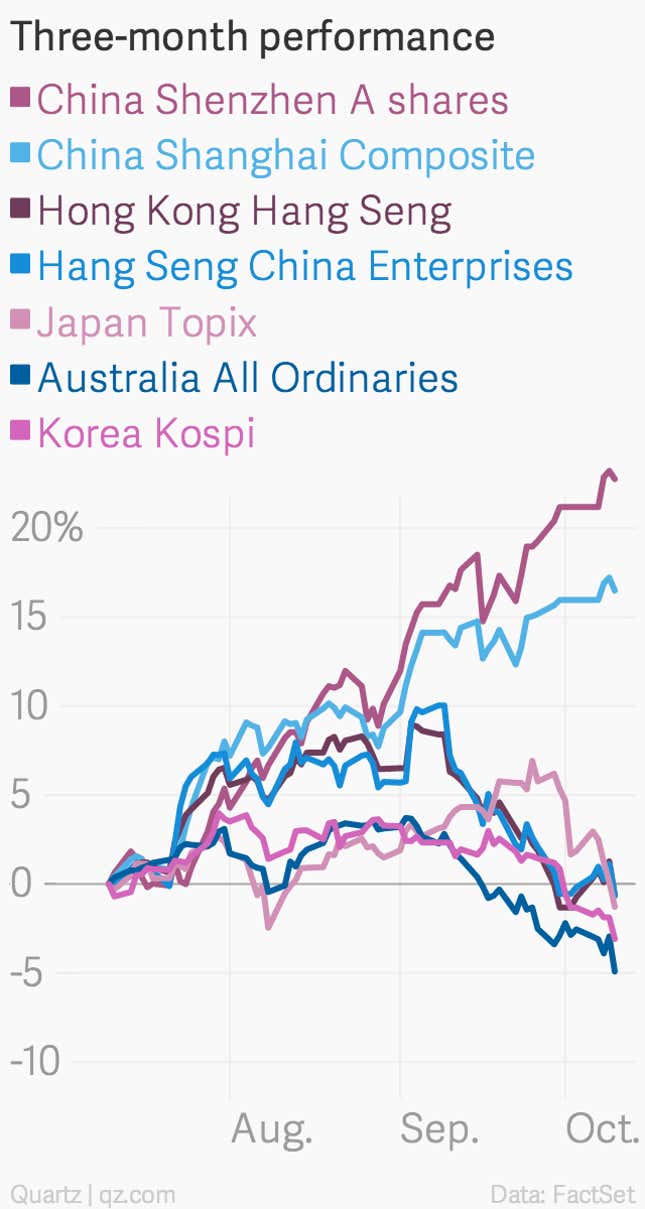
China’s economic growth has appeared to downshift rapidly in recent months. Investors around the world have seen the numbers. And major indexes in Asia and Australia, where China is a key trading partner, have responded. But on the mainland itself, the view is apparently very different.
China’s Shenzhen “A” shares index and the Shanghai Composite, both of which track domestically listed equities, are up 23% and 16%, respectively, over the last three months. It’s a sharp contrast with the other benchmarks. Even Hong Kong’s Hang Seng China Enterprises index, which specializes in mainland companies, has fallen into negative territory, declining 0.6% in the last three months.
What’s keeping hope afloat in China? It seems to be expectations on the part of Chinese investors that the government will be able to offset the slowing economy with a combination of easier money and other stimulus measures.
Is their faith warranted? Well, it stands to reason that investors who actually are inside China might have a better sense of which way the domestic political winds are blowing, versus, for example,someone in Australia.
But if it behooves one to be cautious about the “efficiency” of markets—that is, their ability to quickly digest available information and use it to accurately price securities—one should be even behoovier when it comes to Chinese stocks (pdf), which tend to be incredibly volatile and historically have been subject to widespread speculation, manipulation, and the heavy hand of government control. In other words, buyer beware.
